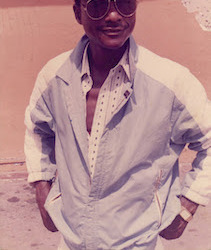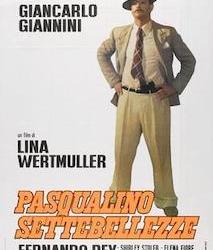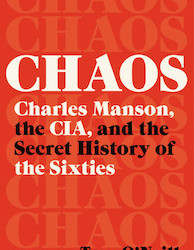#wallahi le zein
Explore tagged Tumblr posts
Text
176: Various Artists // Wallahi le Zein!! Wezin, Jakwar and Guitar Boogie from the Islamic Republic Of Mauritania

Wallahi le Zein!! Wezin, Jakwar and Guitar Boogie from the Islamic Republic Of Mauritania Various Artists 2011, Latitude (Bandcamp)
In the early 2000s, Nouakchott, a city of roughly a million people and capital of Mauritania, was largely without electricity. Thousands of migrants from rural villages arrived in Nouakchatt each month, forced from their traditional homes by increasing desertification or drawn by the opportunities in the country’s only large settlement, and the city’s outskirts became a chaotic maze of Berber tents and rough houses built from bricks of sand. And yet, since the late 1970s, Mauritania’s most popular native music is played on the electric guitar. As the extensive liner notes of the Wallahi le Zein!! Wezin, Jakwar and Guitar Boogie from the Islamic Republic Of Mauritania compilation explain, (as of 2011 anyway) Mauritania has no domestic recording industry, no studios, no concert touring circuit. Instead, musicians make their bread by performing at weddings, parties, or private get-togethers. Musicians tend to be hired on individually, and you’re expected to be able to play with whomever else is working the event; a singer, percussionists, and a guitarist or two will roll up to the event, plug their amplifiers into a generator or car battery, and start to rip. Hiring a musician also gives you the right to record the performance as a souvenir of the night, and some of these tapes are sold or traded at markets—most are recorded off of a boombox sat directly in front of the musicians, and the tapes are often little more than a snow of laughter, shouted conversations, and blown out guitar squall.
youtube
Compiler Matthew Lavoie (who also runs the staggeringly great African cassette blog Wallahi le Zein!!/Wealth of the Wise) has done heroic work with this compilation: by trawling through literally thousands of tapes from Mauritania that he collected during his time in the region, he’s managed to shine a light on an almost completely unknown corner of the musical world, and also compiled one of the rawest, most intriguing collections of guitar music of the past few decades. Wallahi le Zein!! focuses on the Beydane (Arabo-Berber) styles which so entranced Lavoie that, after witnessing a single performance in nearby Senegal, drove him to spend a number of years immersing himself in the culture. Guitar Beydane-style is blazingly fast, heavy on the flange, and relies on amps cranked to the absolute max to be heard over the commotion of a crowded party. Many guitarists heavily modify their instruments—Lavoie cites the example of Luleide ould Dendenni, who added extra frets to his guitar’s neck to approximate microtonal traditional instruments like the tidinitt (a five-stringed lute) and then carved a hole in the back to incorporate the electronics from a Boss Phase Shifter pedal he’d grown tired of getting tangled up with his other cables.
Performances at Mauritanian Nadwiya (meaning invitations, or gigs) are lengthy and improvisational, combining the singing of traditional poems with wezin, instrumental guitar melodies that drive partygoers into ecstatic gyrations. Wallahi le Zein!! is made up of excerpts from these 60- to 90-minute performances, with Lavoie cutting out sections from those tapes with the most listenable audio quality when the guitarists start to absolutely cook. There are some vocal passages here and there, but the compilation is primarily a showcase for blistering axework. This is uniformly captivating stuff: Kweli ould Seyyid and Klayhid ould Mehlid’s “Wezin” sounds like a dance for sparks in a divine forge; meanwhile the thrashing ”Wezin” of Jeich ould Chighaly has a guitar tone that reminds me of a classic SST band. Though there is an ethnographic aspect of this project, Lavoie’s choice to use existing recordings rather than recording the artists himself in the Alan Lomax tradition makes for a livelier end product. At times, you’ll hear members of the audience freaking out, or emcees stepping in to direct traffic on the dancefloor. Runs erupt out of nowhere and just as abruptly fizzle out, and we stay with each performance only as long as it maintains interest.
Wallahi le Zein!! was released in 2011 as a two-CD set, and reissued more recently on wax in 2021 featuring only 11 of the original 28 recordings. This is a clear instance where being a junkie for the LP format bites you in the ass, as the CD version is far more comprehensive and realistically sounds exactly the same or better. With that said, even in its truncated form the compilation is a fine testament to the dizzying talents of Nouakchott’s Beydane guitarists, and to Lavoie’s laudable work bringing them to a wider audience. A must-have for fans of adventurous guitar music.
P.S. If you find yourself digging the compilation, it’s worth seeking out a tape of a full performance to understand the context of these excerpts. This is a good place to start!)
176/365
#mauritanian music#mauritania#ethnomusicology#electric guitar#african guitar#Luleide ould Dendenni#wallahi le zein#beydane#'90s music#'00s music#african music
1 note
·
View note
Text
Listed: Horse Lords

Baltimore-based Horse Lords have been forging their own take on experimental rock music since 2012. The quartet, Andrew Bernstein (saxophone/percussion), Max Eilbacher (bass/electronics), Owen Gardner (guitar) and Sam Haberman (drums) weave together pieces drawing on divergent sources that include everything from 20th and 21st century classical music to just intonation tuning to African and Appalachian musical traditions to intricate polyrhythms and studio experiments. In a recent interview, Gardner talked about their approach to putting pieces together. “We generally write right up to the edge of our abilities. And sometimes slightly beyond. We’d had to scrap quite a few songs because they proved to be basically impossible to play... It keeps it interesting.” Ian Forsythe covered their newest release, The Common Task, noting that “Their nearly ten-year core pivots rhythmic and tonal ideas athletically, and their ability to pull elements from anywhere and everywhere is seemingly more fluid with each record.”
For this Listed, the four members runs down a list of live shows, recordings, blogs, movies, and books that have been on their minds.
Gleb Kanasevich plays Horațiu Rădulescu’s “Inner Time II for seven clarinets (Op.42b),” Baltimore. 2018 (Owen Gardner)
youtube
A near-hourlong ear workout, combining impressive sonic and structural brutality. The interaction of what these close dissonances do inside your ears with what the clarinets do in space (Gleb played live with 6 recordings of himself, meticulously arranged around the audience) is a haunting experience, celestial but with no concession to human music.
Maryanne Amacher — Perceptual Geographies, Philadelphia 2019 (Owen Gardner)

https://issuu.com/bowerbirdphilly/docs/amacherprogramonline
So much revelatory material has come out of the Maryanne Amacher archive so far, and particularly these loving reconstructions of her instrumental music. A lot more attention seems to have been given to “Petra,” which is certainly gorgeous and shows fascinating symmetries with the spatial/timbral concerns of her electronic music, but “Adjacencies” struck me as the Major Work of 20th Century Music. She wrote the damn thing in 1965 and it sounds fresh half a century later, which we can say of no previous piece of percussion music and not much written subsequently. I am slowly losing my mind waiting for Amy Cimini’s book on Amacher to come out, craving a deeper dive into her theory and methods.
Sarah Hennies, Bonnie Jones, Lê Quan Ninh, and Biliana Voutchkova at the High Zerofestival, Baltimore 2019 (Owen Gardner)
youtube
One of at least three great things Sarah Hennies did last year (Reservoir 1 on Black Truffle and the 90 minute cello/percussion duo “The Reinvention of Romance” being the others) was to take part in Baltimore’s High Zero festival, four mind-frying days devoted to free improvisation. This set was one of the highlights of 2019’s festival; each of the four performers having at least one foot in composed music (Ninh is a long-time Cage interpreter and Biliana has collaborated with Peter Ablinger) seemed to lend it a certain sureness and serenity, but ultimately their combined strength as improvisors (fastidiously captured by High Zero’s crack recording team) is what makes it such an engaging listen.
El Chombo — Cuentos de la Cripta (Owen Gardner)
youtube
A relentless tetralogy that nicely balances the rawness of ‘90s proto-reggaetón productions (the first volume self-identifies as “Spanish Reggae”) and the slicker, synth-oriented sound and settled genre conventions we’ve come to enjoy (or not) in the 21st century. This was helpful when working on “People’s Park,” not least for its insistent connection to Jamaican music. I can understand very little Spanish but I'm guessing the lyrics are not unproblematic; signifying language always disappoints.
Wallahi Le Zein! (Owen Gardner)

http://thewealthofthewise.blogspot.com/
An invaluable resource for anyone interested in African music, much more consistent and informative than the often yucky reissue market, which seems to prioritize awkward (and marginal) attempts at Western musical fads—as if what was available was not an impossibly rich and heterogeneous network of self-sufficient musical cultures but merely a broken mirror facing America. The archive of Mauritanian music alone makes this the most worthwhile stop on the information superhighway. There’s plenty of goofy drum programming and appalling sound quality if that’s your bag, but the rich variety of traditional musics is what keeps me coming back.
Miles Davis — On the Corner (Max Eilbacher)
youtube
Some might say Stockhausen serves imperialism but he did his little part to help cook up some of the most twisted American Jazz/funk jams ever. Davis only kept one cassette in his convertible sports car during the On the Corner sessions, a tape of “Hymnen.” He would take each member of the band on highspeed joy rides with the car’s stereo system on full blast. That same energy was channeled in the arrangement and editing. The convergence of a lot of different elements keeps this record on my top 10 list ‘til the end of time. The little detail of Americans taking concepts from European Neu Musik and making something incredibly funky and pleasurable is the cherry on top.
Olivia Block & Marcus Schmickler at Diffusion Festival, Baltimore 2018 (Andrew Bernstein)

This was an amazing pairing, with both artists playing in 8-channel “surround sound.” Marcus’ set was incredibly intense. Pure synthesis with a lot of psychoacoustic inner ear tones and unending overlapping melodies. It felt like the sonic equivalent of watching a strobe light at close distance. Olivia’s set was a slow creep, laying samples to create lush textures that were truly immersive. This was the kind of concert that reminds you of the awesome power of music.
Blacks’ Myths at the Red Room, Baltimore 2019 (Andrew Bernstein)
Blacks' Myths II by Blacks' Myths
I’m there for anything bassist Luke Stewart touches (see Irreversible Entanglements, his solo upright + feedback work, frequent collaborations with too many people to name). Blacks' Myths, his bass and drumset duo with Warren Crudup, is loud, noisy, and intense, and this set at the Red Room last year was particularly transcendent.
“Blue” Gene Tyranny — Out of the Blue (Andrew Bernstein)
Out of the Blue by "Blue" Gene Tyranny
I have probably listened to this record more than any other the last few years. Perfectly crafted pop songs segue into proggy funk jams and then into stream of consciousness drone pieces based around the doppler effect. I’ll put it on over and over again, an experience with an album I haven’t really had since I was in high school.
Bill Orcutt — An Account of the Crimes of Peter Thiel and His Subsequent Arrest, Trial, and Execution 2017 (Max Eilbacher)
AN ACCOUNT OF THE CRIMES OF PETER THIEL AND HIS SUBSEQUENT ARREST, TRIAL AND EXECUTION. by BILL ORCUTT
Legendary underground American guitarists from the most important American rock band also makes top notch conceptual digital audio art. Years ago I thought computer music lacked a certain sub cultural attitude. While this was/is not true, this 2017 release feels like it exists in its own world. High and low brow are in perfect harmony for this patterned enjoyable hellride of a listen. What if Hanne Darboven had to make art while working a full time job and dealing with mild substance abuse?
Lina Wertmüller — Seven Beauties 1975 (Max Eilbacher)

By Source, Fair use, https://en.wikipedia.org/w/index.php?curid=42000553
https://en.wikipedia.org/wiki/Seven_Beauties
During this pandemic I have been talking film shop over emails nonstop. I went through a big Wertmüller phase in 2018-2019 and as people are trading recommendations I usually try to recommend something by her. This film is the one that I keep reaching for. The email recommending this film usually starts as a draft with “this is really intense” and then I try to hearken back to my film school days and write about the male gaze, patriarchy, communism or something of that nature. I end up writing a bit, feeling like it’s way over the top for a casual email and then I end up deleting everything except “this is a really intense and beautiful film.”
Chaos: Charles Manson, the CIA and the Secret History of the Sixties by Tom O’Neill (Sam Haberman)

https://www.littlebrown.com/titles/tom-oneill/chaos/9780316477574/
The last book I managed to check out of the library before it closed. Though it in some ways resembles works of conspiracy theory, Tom O’Neill is always straightforward in telling the reader that, though the official story of the Manson case is almost certainly not true, the actual details don’t cohere into any kind of Meaning. Every new discovery is its own digression that points to a new unknowable truth or unverifiable claim. This really inverts the normal thrill of conspiracy theory, which invites you to either buy into the story being presented or reject it all together, either path offering its own sort of comfort. Chaos offers no such comfort.
#dusted magazine#listed#horse lords#andrew bernstein#max eilbacher#owen gardner#sam haberman#gleb kanasevich#horațiu rădulescu#maryanne amacher#sarah hennies#bonnie jones#lê quan ninh#biliana voutchkova#high zero festival#el chombo#wallahi le zein#miles davis#olivia block#marcus schmickler#blacks’ myths#“blue” gene tyranny#bill orcutt#lina wertmüller#tom o’neill
5 notes
·
View notes
Photo

This album might hypnotize you....
Wallahi Le Zein! by Various Artists https://mississippirecords.bandcamp.com/album/wallahi-le-zein
7 notes
·
View notes
Text
episode 41: music to clean the pantry & drink beer by (09.29.21)
set 1:
Low – Don’t Walk Away – HEY WHAT (Sub Pop, 2021)
Broadcast – Look Outside – The Noise Made By People (Warp, 2000)
Neon Pearl – Forever – 1967 Recordings (Acme, 2001)
Andrew Bernstein – Broken Arc – An Exploded View of Time (Hausu Mountain, 2018)
set 2:
Tetuzi Akiyama / Che Chen – Fascinated By Climax – Cold Soup (Incunabulum, 2012)
Mohammed Guitar with Sbeyniat – Gelbi Vatimetou – Various: Wallahi Le Zein! (Mississippi, 2021)
Andrew Cronshaw – Leaving Rhu Vaternish – Wade in the Flood (Transatlantic, 1978)
Taylor K Conrad – Flowers – no album (self-released, 2021)
set 3:
Ken Nordine – Lavender – Colors: A Sensuous Listening Experience (Philips, 1966)
Hayden Pedigo – Carthage – Letting Go (Mexican Summer, 2021)
June Tabor – Cold and Raw – Ashes and Diamonds (Topic, 1977)
Paul Brady – The Lakes of Pontchartrain – Welcome Here Kind Stranger (Mulligan, 1978)
Tassos Chalkias – Dirminitsa – Divine Reeds: Obscure Recordings from Special Music Recording Company (Athens 1966-1967) (Radio Martiko, 2021)
Jody Stecher and Friends – Wedding Dress – Snake Baked a Hoecake (Bay, 1974)
1 note
·
View note
Photo

Khalifa ould Eide & Dimi mint Abba - Unreleased recording from 1986
I’ve been digging into this new-to-me blog — WALLAHI LE ZEIN! Its proprietor says: “For twenty years I collected cassettes throughout Africa. For the next ten years the cassettes sat in boxes. Cassettes have now disappeared in Africa. I am sharing my favorites on this blog. The quality of the recordings are not always great, the music is.” Right on. I highly recommend checking out this murky-but-magnificent mid-80s direct-to-boombox Mauritanian tape, filled with fiery guitar / ardin jams. Amazing!
26 notes
·
View notes